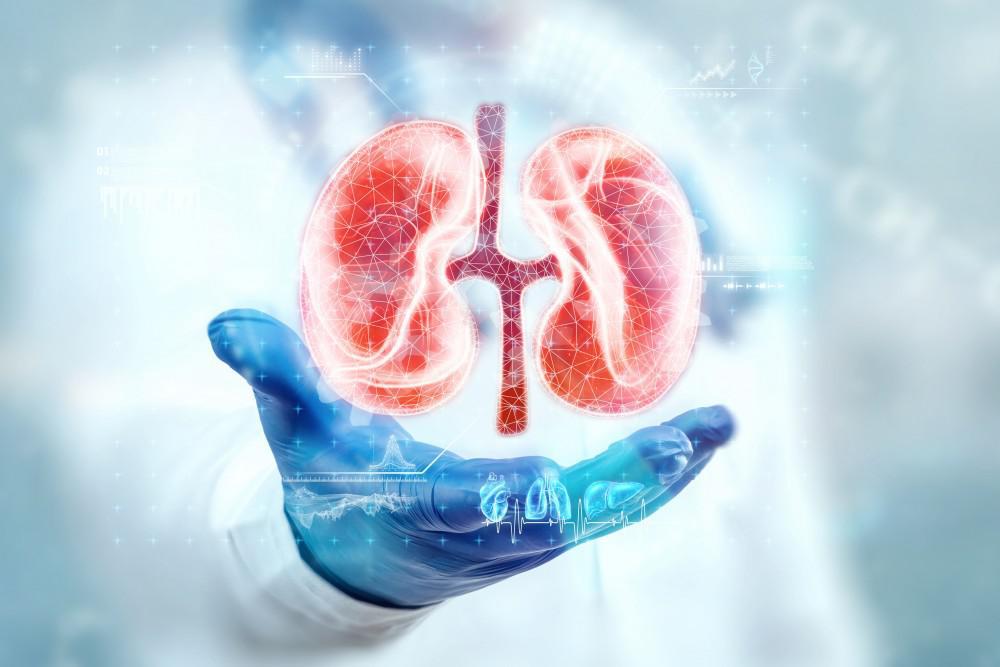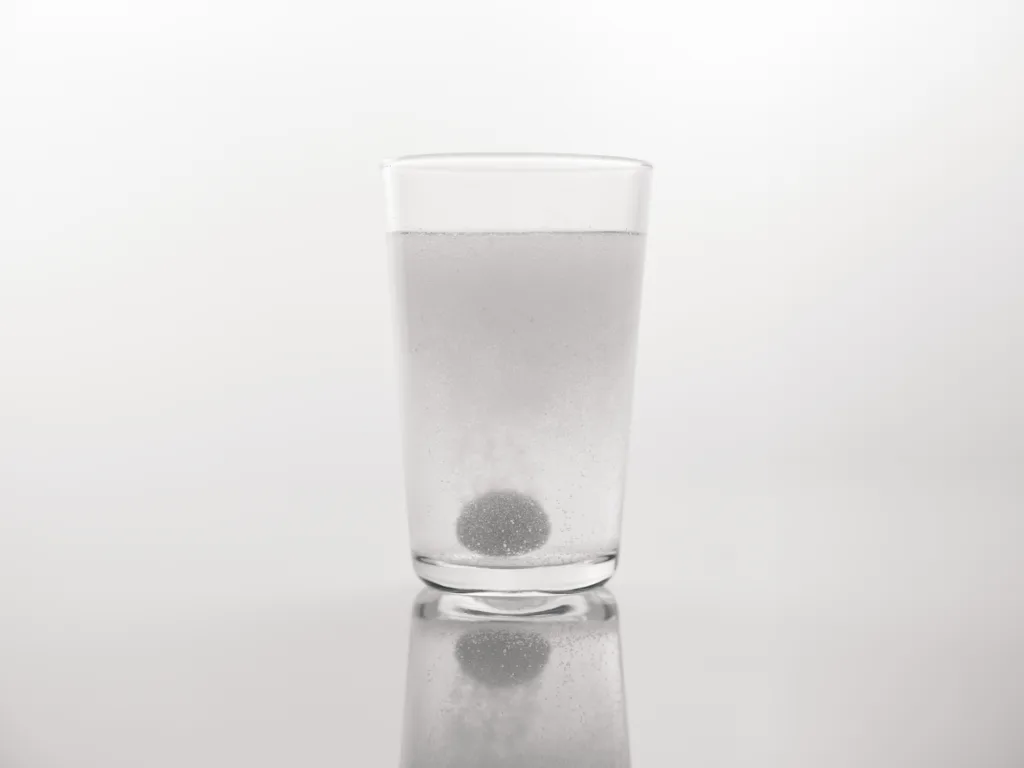The kidneys are two bean-shaped organs located on either side of the spine in the lower back. They play a vital role in filtering waste products and excess fluid from the blood, which is then excreted in the form of urine. Kidney disease is a serious condition that can lead to kidney failure if left untreated. There are many factors that can contribute to kidney disease, including high blood pressure, diabetes, and certain medications.
One popular home remedy for various health issues is the use of baking soda and water. Baking soda, also known as sodium bicarbonate, is a white crystalline powder that has a variety of uses, including as a leavening agent in baking and as an antacid to relieve heartburn and indigestion. However, there is some debate as to whether or not drinking baking soda and water is bad for your kidneys.
On the one hand, some studies have suggested that baking soda may have a protective effect on the kidneys. For example, a study published in the Journal of the American Society of Nephrology found that patients with chronic kidney disease who took sodium bicarbonate had a slower rate of decline in kidney function compared to thse who did not take it. Rapid progression of kidney disease occurred in just nine percent of patients taking sodium bicarbonate, compared to 45 percent of the other group.
However, it is important to note that this study was small and more research is needed to fully understand the potential benefits and risks of using baking soda for kidney health. In addition, excessive use of baking soda can lead to a condition called metabolic alkalosis, which occurs when the body’s pH becomes too alkaline. This can cause symptoms such as nausea, vomiting, and confusion.
So, is baking soda and water bad for your kidneys? The answer is not clear-cut. While there is some evidence to suggest that baking soda may have a protective effect on the kidneys, excessive use can lead to other health problems. It is important to talk to your doctor before using baking soda as a home remedy, especially if you have a history of kidney disease or other health issues.
The kidneys are an important part of the body’s filtration system, and kidney disease can have serious consequences if left untreated. While baking soda and water may have some potential benefits for kidney health, it is important to use it in moderation and under the guidance of a healthcare professional. As with any home remedy, it is important to do your research and talk to your doctor before using baking soda for any health-related purposes.
The Effects of Baking Soda on Kidney Health
Baking soda, also known as sodium bicarbonate, is a common household ingredient used for various purposes, including cooking, cleaning, and even as a natural remedy for acid reflux. However, there has been concern about whether using baking soda can damage kidneys.
The kidneys play a crucial role in filtering waste products from the blood and regulating the body’s fluid balance. Any damage to the kidneys can lead to serious health problems, including kidney failure.
While baking soda is generally considered safe when used in moderation and for short periods of time, there is some evidence to suggest that long-term use of high doses of baking soda can potentially harm the kidneys.
A study published in the Journal of the American Society of Nephrology found that patients with chronic kidney disease who took sodium bicarbonate had a slower rate of decline in kidney function compared to those who did not take sodium bicarbonate. However, this study was conducted in a specific population of patients with chronic kidney disease and may not be applicable to the general population.
It is important to note that excessive intake of baking soda can lead to a condition called metabolic alkalosis, which is characterized by an overproduction of bicarbonate in the blood. This can lead to a range of symptoms, including nausea, vomiting, muscle twitching, and confusion. In severe cases, metabolic alkalosis can cause seizures, coma, and even death.
To avoid potential kidney damage or other health problems, it is recommended that baking soda be used in moderation and under the guidance of a healthcare professional. It is also important to maintain a balanced and healthy diet, stay hydrated, and avoid excessive use of medications or supplements wthout medical supervision.
While baking soda may have potential benefits for kidney health, excessive or long-term use can potentially harm the kidneys and lead to other health problems. It is important to use baking soda in moderation and under the guidance of a healthcare professional to avoid potential risks.

Using Baking Soda for Kidney Health
Baking soda, also known as sodium bicarbonate, has been used as a home remedy for various health issues for years, including kidney problems. However, it is important to note that while baking soda has some potential benefits for the kidneys, it should only be used uder the guidance of a healthcare professional.
The recommended dosage of baking soda for kidney problems varies based on individual circumstances and medical history. It is important to consult with a doctor before starting any new treatment, including using baking soda.
In general, the recommended dosage of baking soda for adults and teenagers is one teaspoonful in a glass of water every four hours. However, the dosage may be adjusted by a doctor based on the individual’s needs and tolerance. It is also important to note that the daily dosage should not exceed four teaspoonfuls per day.
While baking soda may have some potential benefits for the kidneys, it is not a substitute for medical treatment. It is important to continue to follow your doctor’s recommendations and treatment plan for any kidney problems you may have.
Frequency of Drinking Baking Soda and Water
Baking soda, also known as sodium bicarbonate, is a household staple that can be used for various purposes, including baking, cleaning, and personal care. Some people also drink baking soda and water as a natural remedy to relieve heartburn, indigestion, and other digestive issues.
However, it’s important to note that drinking baking soda and water regularly may have adverse effects on your health. Baking soda is highly alkaline, and consuming too much of it can disrupt the acid-base balance in your body, leading to a condition called metabolic alkalosis.
Metabolic alkalosis can cause symptoms such as nausea, vomiting, muscle twitching, and confusion. It can also affect your heart and lungs, leading to irregular heartbeat and respiratory failure in severe cases.
Therefore, it’s recommended to drink baking soda and water only occasionally and in moderation. The American Heart Association suggests a maximum daily intake of 2,300 milligrams of sodium, which is equivalent to one teaspoon of salt. Since baking soda is high in sodium, consuming more than one teaspoon of it per day can exceed your daily sodium limit and increase your risk of high blood pressure, stroke, and other health problems.
In general, it’s best to consult with your healthcare provider before using baking soda as a natural remedy or supplement. They can advise you on the safe and appropriate use of baking soda based on your medical history, current medications, and individual needs.
Drinking baking soda and water can have potential health benefits, but it should be done in moderation and under medical supervision. It’s important to maintain a balanced and varied diet that provides all the essential nutrients your body neds to function properly.
The Benefits of Drinking Baking Soda and Water
Drinking a mixture of baking soda and water has been a popular home remedy for various health issues. Baking soda, also known as sodium bicarbonate, is an alkaline compound that can neutralize acids in the body. Here are some of the benefits of drinking baking soda and water:
1. Relief from indigestion and heartburn: Baking soda can neutralize stomach acid, providing relief from indigestion and heartburn. It acts as an antacid and can quickly alleviate symptoms.
2. Reduces muscle fatigue during exercise: Baking soda has been shown to improve muscle endurance during high-intensity exercise. It helps to buffer the lactic acid that builds up in muscles during exercise, reducing fatigue and allowing for longer periods of activity.
3. Helps with kidney function: Baking soda can help to balance the pH levels in the body, which can improve kidney function. It has been shown to be effective in reducing the progression of kidney disease.
4. Reduces inflammation: Baking soda has anti-inflammatory properties that can help to reduce inflammation in the body. This can be beneficial for conditions such as arthritis and other inflammatory conditions.
5. May improve dental health: Baking soda can help to whiten teeth and freshen breath. It can also reduce the buildup of plaque on teeth and improve oveall dental health.
When consuming baking soda and water, it is important to follow recommended dosages and not exceed the daily limit. Excessive consumption of baking soda can lead to side effects such as nausea, vomiting, and diarrhea. It is also important to consult with a healthcare professional before using baking soda as a remedy for any health condition.

Conclusion
The kidneys play a crucial role in maintaining the body’s overall health and wellbeing. It is important to take care of them by maintaining a healthy diet, staying hydrated, and avoiding excessive alcohol and tobacco use. Sodium bicarbonate has been shown to have potential benefits in slowing the progression of kidney disease, but it shoud always be taken under the guidance of a healthcare professional. Regular check-ups and monitoring of kidney function are also essential for early detection and treatment of any issues. By prioritizing kidney health, we can ensure that our bodies are functioning optimally and that we are able to live our best lives.
